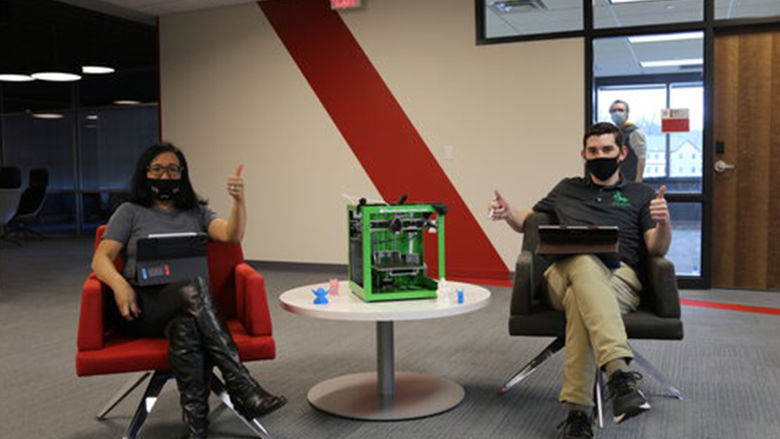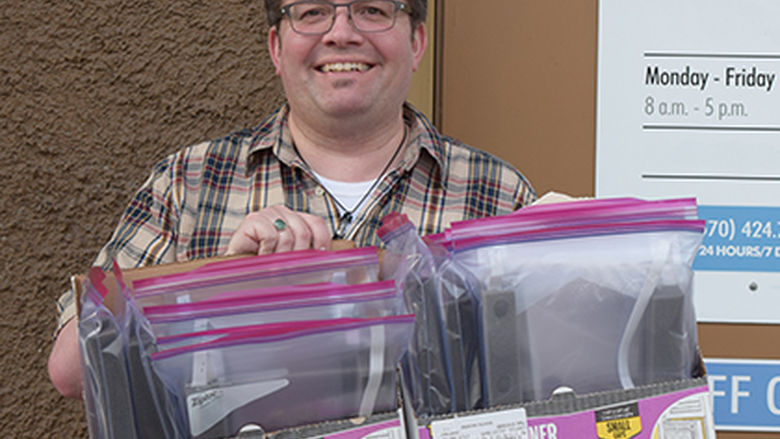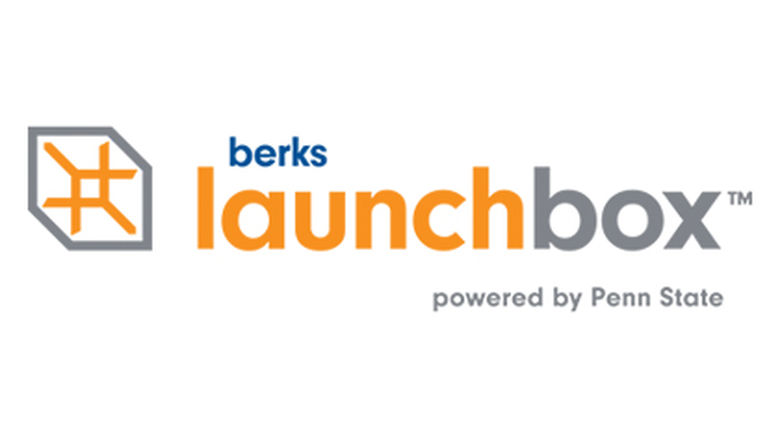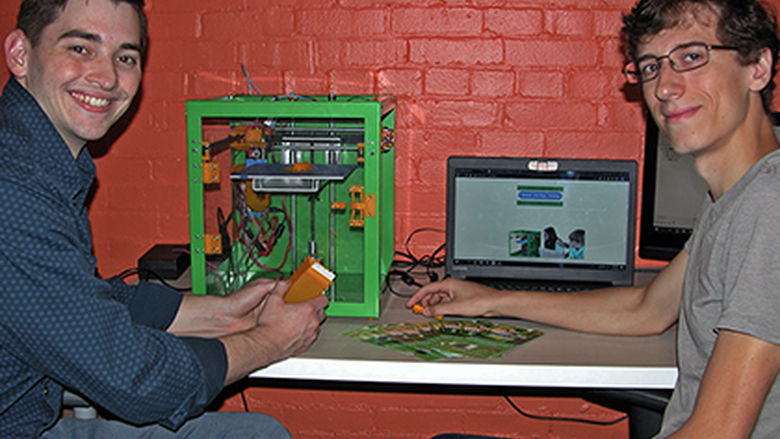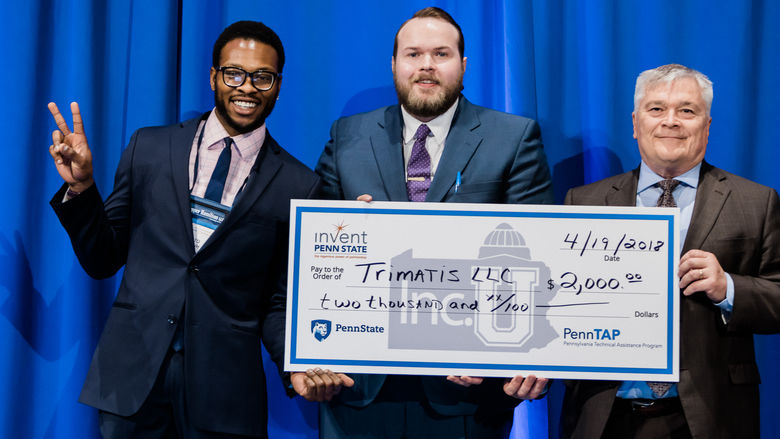
Xact Metal, a startup that has recently introduced the XM200, its first 3D printer, credits its success to Invent Penn State.
UNIVERSITY PARK, Pa. — Matt Woods built his first 3-D printer as an undergraduate in a Penn State dorm room with just $700 in materials.
“I was enamored with the idea of a 3-D printer,” says Woods, who was introduced to the concept as a mechanical engineering undergraduate at Penn State Berks. 3-D printers can produce complex metal or plastic objects in small batches, allowing for quick experimentation with new products and prototypes.
Woods transferred to the University Park campus as a junior, where he joined the Lunar Lion project and led 3-D printing of rocket components. “I had phenomenal experiences as an undergrad, getting access to University resources to print rockets with advanced alloys. It only led me to more,” says Woods.
He later completed internships at SpaceX in California, and at Penn State’s CIMP-3D, a world-class additive manufacturing research facility, before earning his degree from the College of Engineering. That deep experience led him to identify a marketplace need: Most high-performing 3-D printers are prohibitively expensive for smaller companies and research facilities to purchase. With experimentation, Woods developed a unique variation on existing metal-printing technology. His new approach reduced costs without sacrificing precision or quality.
Today, Woods is the chief technology officer of Xact Metal, a startup that has recently introduced the XM200, its first 3-D printer. The XM200 will be the first in a family of printers that share Woods’ patent-pending process.
“Matt recognized a need, and solved for it,” says Juan Mario Gomez, CEO of Xact Metal. “His technology is changing the perception that this type of additive manufacturing is only for large, capital-rich companies.” Gomez notes that the market for 3-D printing is global and potential customers include manufacturers in aerospace, automotive and medical technology industries, among others.
Xact Metal is headquartered at Penn State’s Innovation Park, and the Penn State connections don’t stop there. Timothy W. Simpson, the Paul Morrow Professor of Engineering Design and Manufacturing, and co-director of Penn State’s CIMP-3D, is an adviser to the company. Nearly all of its employees are Penn State alumni.
As the Xact Metal team developed the company from an undergraduate idea into a fully-fledged startup, they also took advantage of a number of programs within Penn State’s entrepreneurship ecosystem. While still a student, Woods participated in the Lion Launchpad business accelerator, as well as the Inc U student pitch competition, earning microgrants and accessing mentorship resources. Xact Metal received assistance and student researchers from PennTAP, a technical consultation program affiliated with the College of Engineering, and the Sapphire Leadership Academic Program, a business consultation program from Smeal College of Business.
The company still maintains relationships with the CIMP-3D lab and Happy Valley LaunchBox, an accelerator and co-working space funded by the Invent Penn State initiative. Woods also received funding from the Innovation & E-Ship Fund in the Harold and Inge Marcus Department of Industrial and Manufacturing Engineering, which he used to sponsor two senior design projects for Xact Metal in the College of Engineering’s Learning Factory. This helped him refine his ideas while advancing key aspects of Xact Metal’s technology.
“We feel as though we have had almost infinite resources and support from Penn State,” says Gomez. “From our proximity to one of the premier universities in the world, to the ability to recruit students, to the openness of those involved with Invent Penn State. The environment is set up to be supportive.”
In the spring of 2016, the team completed the Ben Franklin TechCelerator @ State College, a 10-week entrepreneurial boot camp that is designed to validate a start-up’s Business Model. The team also applied to Ben Franklin’s investment program and received a $35,000 initial investment to be used for product/market validation. They are expecting an additional $150,000 investment from the program in 2017.
With the release of the XM200 in May, Xact Metal has already generated early buzz among those in the 3-D printing industry. The company will begin shipments of their product in the third quarter of 2017.
For his part, Woods has already experienced the feeling of success. “It’s been my dream to create things that don’t exist yet, to innovate, and to have the tools to do that,” he points out. “And this technology will, in turn, give that experience to more people.”
About Invent Penn State
Invent Penn State is a Commonwealth-wide initiative to spur economic development, job creation and student career success. Invent Penn State blends entrepreneurship-focused academic programs, business startup training and incubation, funding for commercialization and University-community collaborations to facilitate the challenging process of turning research discoveries into valuable products and services that benefit Pennsylvanians and humankind.
Author's note: Timothy W. Simpson has no ownership stake or equity in Xact Metal.

